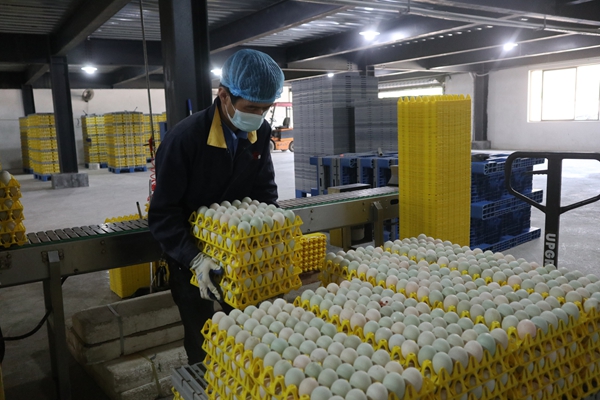Smart tech bolsters duck farming, boosts rural vitalization

A worker is busy packaging the duck eggs. [Photo provided to chinadaily.com.cn]
Nestling in the mountainous village of Danyun in Yongtai county, located in Fuzhou city in East China's Fujian province, Yongtai County Golden Egg Development Co Ltd has established six duck houses and one digital center.
This is the phase-one project of the Golden Egg Project, a key initiative which is expected to help implement the area's rural vitalization strategy.
Occupying 255 mu (17 hectares), the Golden Egg Project aims to raise 1.2 million egg-laying ducks, with with a total investment of 350 million yuan ($49 million).
"We will utilize automated and intelligent cage farming, making 'herding ducks onto shelves' a new way for large-scale breeding," said Xu Jianhua, on-site manager of the company.
"The first phase of the Golden Egg Project started production in September 2021, with a capacity to raise up to 300,000 egg-laying ducks. Currently, we are breeding 280,000 ducks, producing up to 220,000 fresh eggs daily," Xu added.
In traditional duck farming, one breeder manages up to 3,000 ducks. Now, with one duck house, only one breeder is needed to oversee 50,000 ducks.
The Golden Egg Project has integrated artificial intelligence and internet of things technology, introducing the duck farming robot, called Mujilang, significantly enhancing breeding efficiency.
Xu said the robot enables fully automated inspections and issues alerts for sick or dead ducks based on their postures through a combination of image recognition and temperature sensing.
"Through technological empowerment, we have realized scientific breeding, data-driven farming, real-time monitoring and standardized operations," Xu added.








